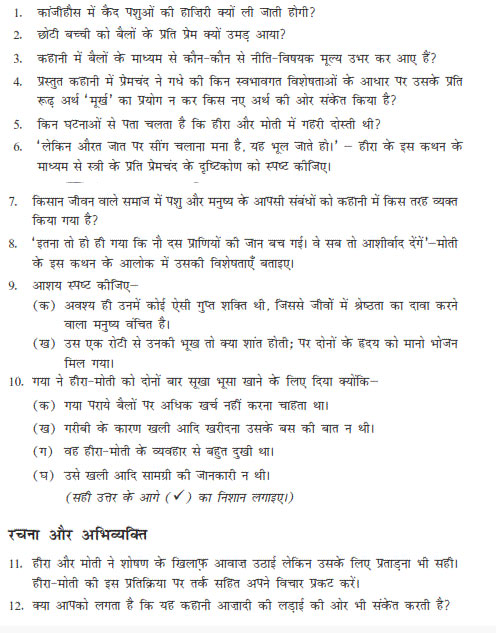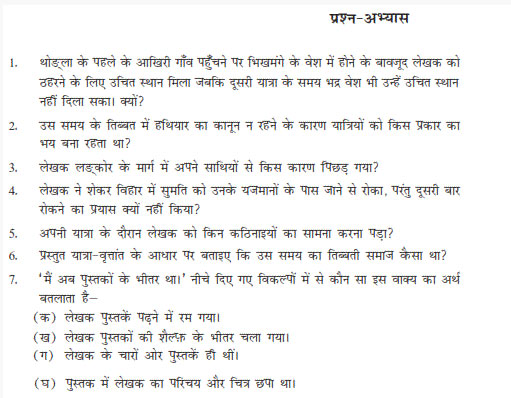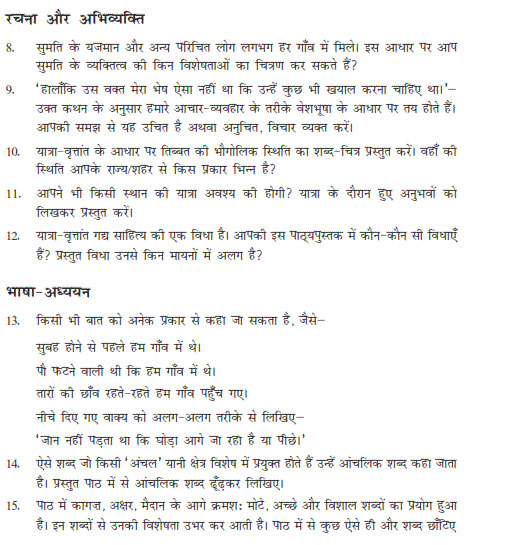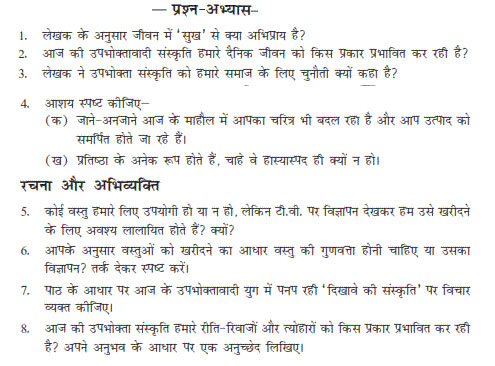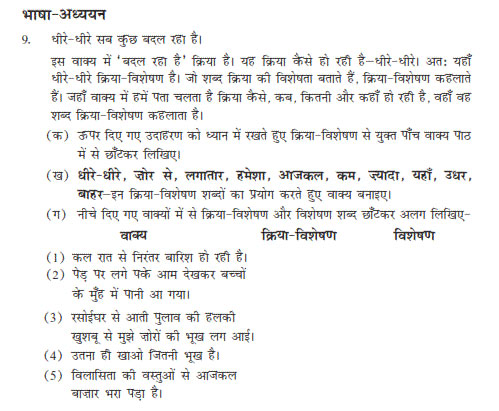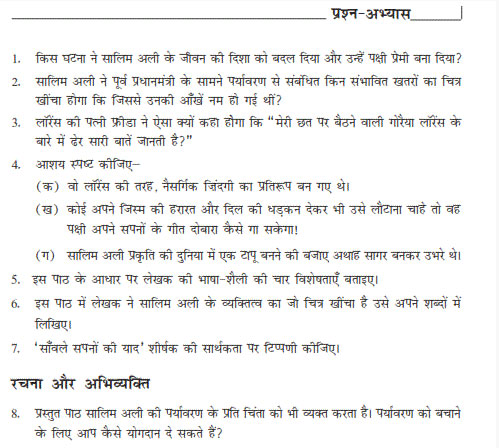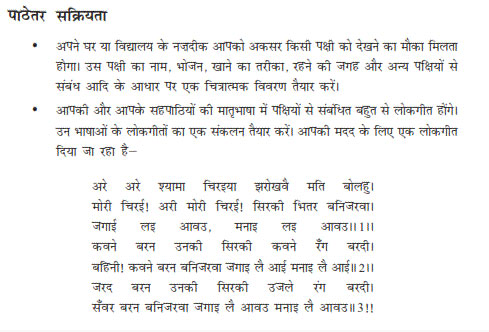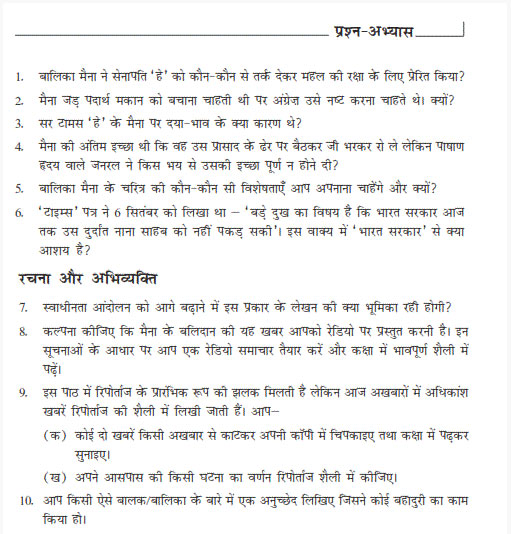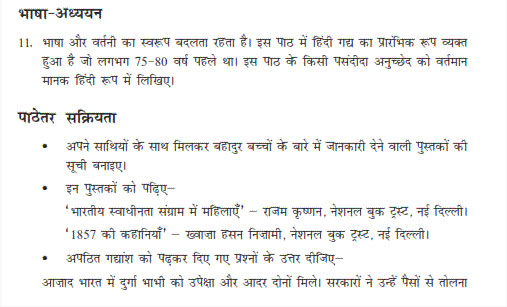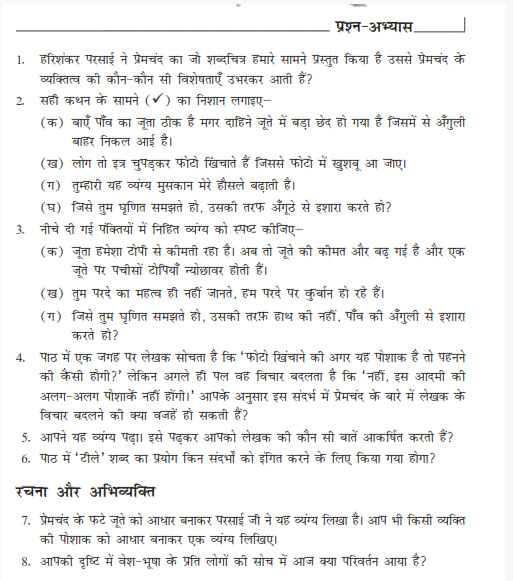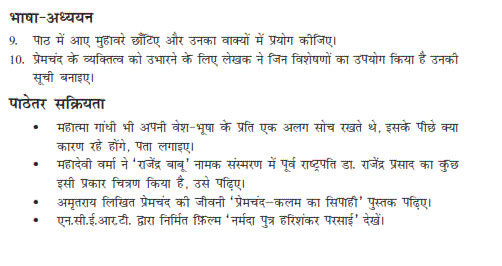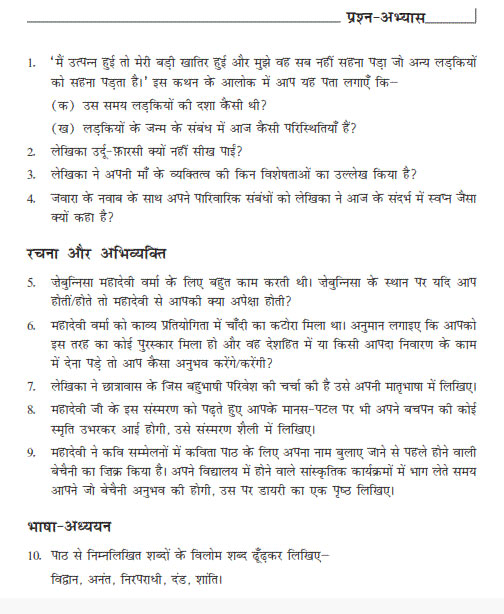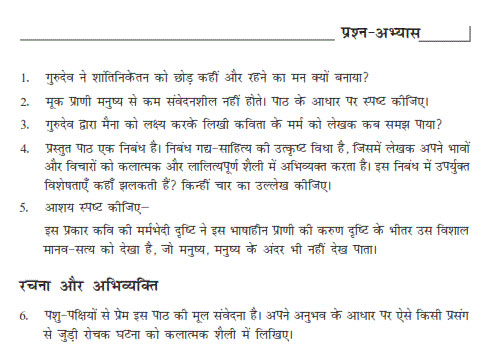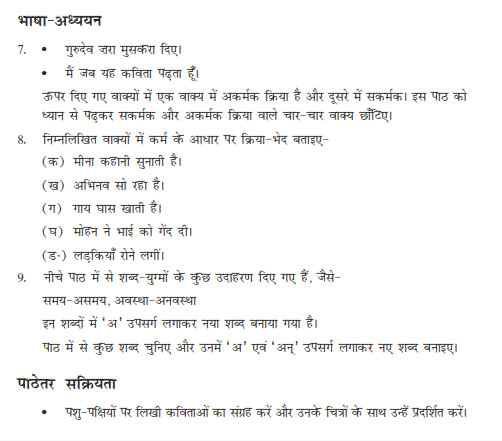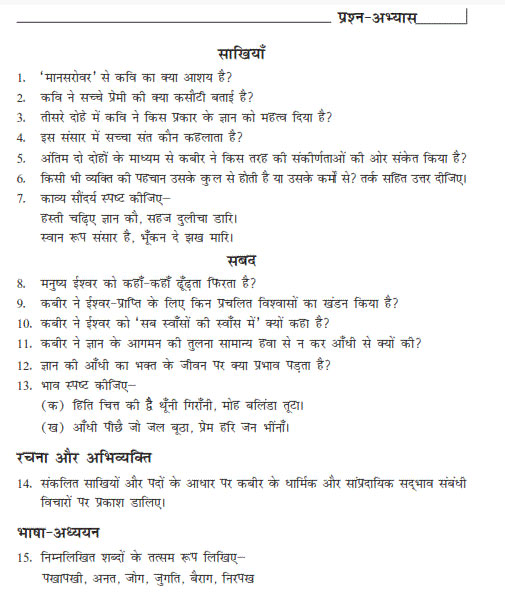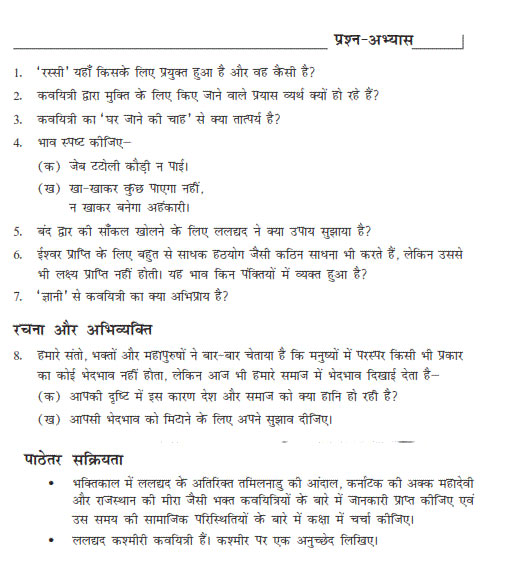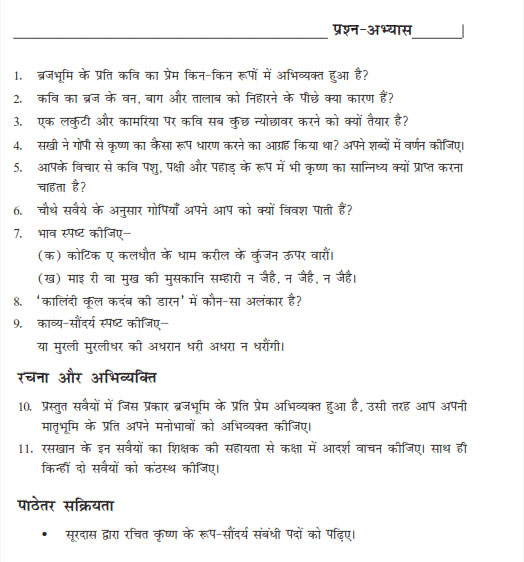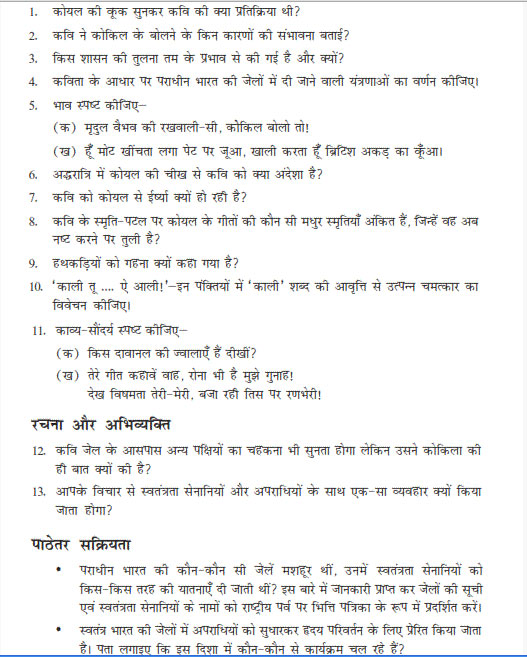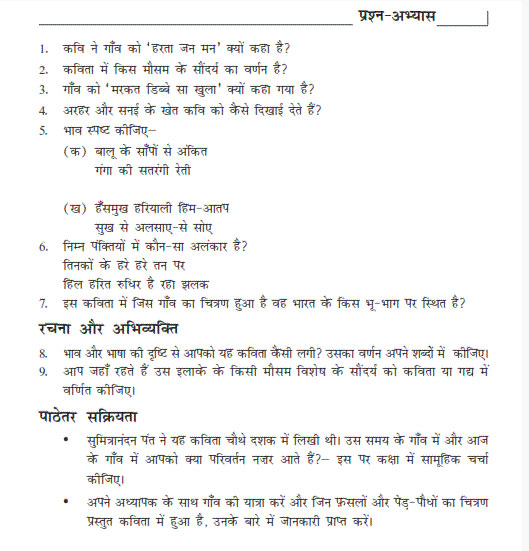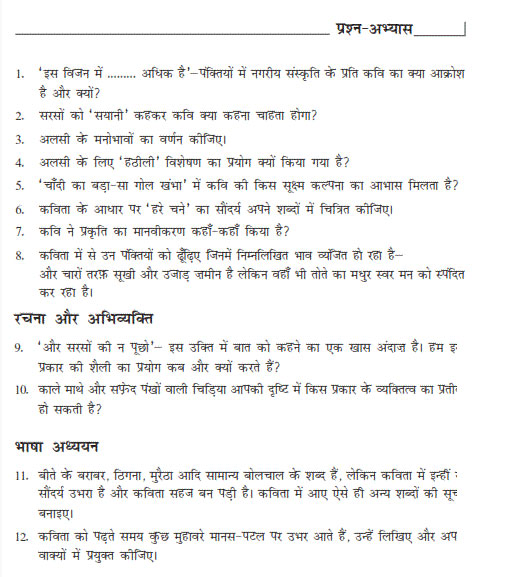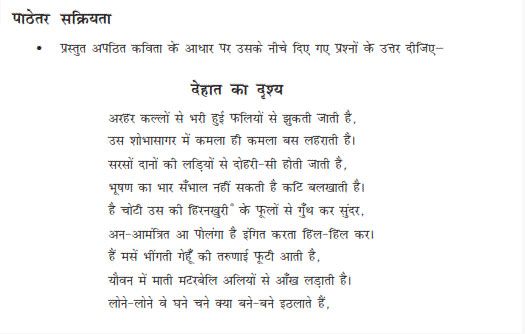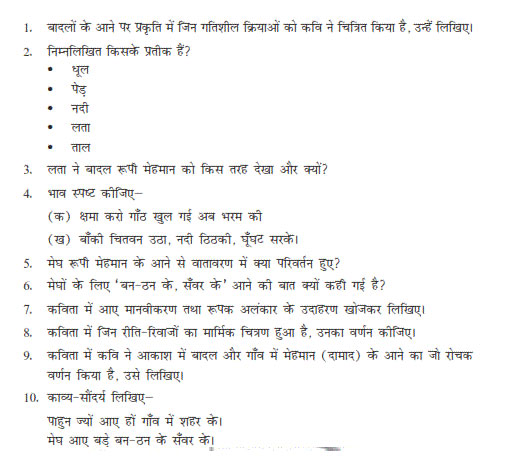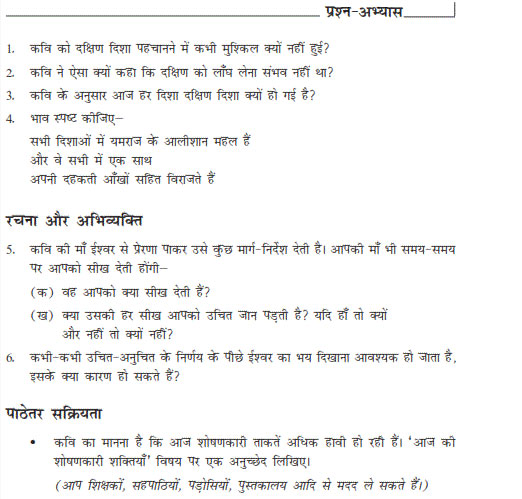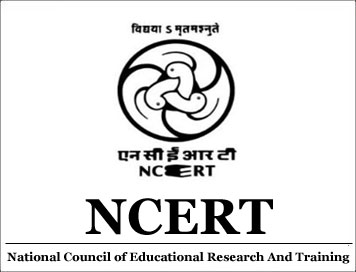
NCERT English Question Paper (Class-9)
Chapter 1 The Fun they Had
Question 1:
1. Find the sentences in the lesson which have the adverbs given in the box below. awfully sorrowfully completely loftily carefully differently quickly nonchalantly
2. Now use these adverbs to fill in the blanks in the sentences below.
(i) The report must be read __________ so that performance can be improved.
(ii) At the interview, Sameer answered our questions __________ shrugging his shoulders.
(iii) We all behave __________ when we are tired or hungry.
(iv) The teacher shook her head __________ when Ravi lied to her.
(v) I __________ forgot about it.
(vi) When I complimented Revathi on her success, she just smiled __________ and turned away.
(vii) The President of the Company is __________busy and will not be able to meet you.
(viii) I finished my work __________ so that I could go out to play.
3. Make adverbs from these adjectives.
(i) angry __________ (ii) happy __________
(iii) merry __________ (iv) sleepy __________
(v) easy __________ (vi) noisy __________
(vii) tidy __________ (viii) gloomy __________
Question 1: Answer these questions in a few words or a couple of sentences each.
1. How old are Margie and Tommy?
2. What did Margie write in her diary?
3. Had Margie ever seen a book before?
4. What things about the book did she find strange?
5. What do you think a telebook is?
6. Where was Margie’s school? Did she have any classmates?
7. What subjects did Margie and Tommy learn?
Question 2: Answer the following with reference to the story.
1. “I wouldn’t throw it away.”
(i) Who says these words?
(ii) What does ‘it’ refer to?
(iii) What is it being compared with by the speaker?
2. “Sure they had a teacher, but it wasn’t a regular teacher. It was a man.”
(i) Who does ‘they’ refer to?
(ii) What does ‘regular’ mean here?
(iii) What is it contrasted with?
Question 3: Answer each of these questions in a short paragraph (about 30 words).
1. What kind of teachers did Margie and Tommy have?
2. Why did Margie’s mother send for the County Inspector?
3. What did he do?
4. Why was Margie doing badly in geography? What did the Country Inspector do to help her?
5. What had once happened to Tommy’s teacher?
6. Did Margie have regular days and hours for school? If so, why?
7. How does Tommy describe the old kind of school?
8. How does he describe the old kind of teachers?
Question 4: Answer each of these questions in two or three paragraphs (100 − 150 words)
1. What are the main features of the mechanical teachers and the schoolrooms thatMargie and Tommy have in the story?
2. Why did Margie hate school? Why did she think the old kind of school must havebeen fun?
3. Do you agree with Margie that schools today are more fun than the school in thestory? Give reasons for your answer.
Chapter 2 The Sound of Music
Question 1: Answer these questions in a few words or a couple of sentences each.
1. How old was Evelyn when she went to the Royal Academy of Music?
2. When was her deafness first noticed? When was it confirmed?
Question 2: Answer each of these questions in a short paragraph (30 - 40 words).
1. Who helped her to continue with music? What did he do and say?
2. Name the various places and causes for which Evelyn performs.
Question 3: Answer the question in two or three paragraphs (100 - 150 words).
1. How does Evelyn hear music?
Question 1: Tick the right answer.
1. The (shehnai, pungi) was a ‘reeded noisemaker.’
2. (Bismillah Khan, A barber, Ali Bux) transformed the pungi into a shehnai.
3. Bismillah Khan’s paternal ancestors were (barbers, professional musicians).
4. Bismillah Khan learnt to play the shehnai from (Ali Bux, Paigambar Bux, Ustad Faiyaaz Khan).
5. Bismillah Khan’s first trip abroad was to (Afghanistan, U.S.A., Canada).
Question 3: Answer these questions in 30 - 40 words.
1. Why did Aurangzeb ban the playing of the pungi?
2. How is a shehnai different from a pungi?
3. Where was the shehnai played traditionally? How did Bismillah Khan change this?
4. When and how did Bismillah Khan get his big break?
5. Where did Bismillah Khan play the shehnai on 15 August 1947? Why was the event historic?
6. Why did Bismillah Khan refuse to start a shehnai school in the U.S.A.?
7. Find at least two instances in the text which tell you that Bismillah Khan loves India and Benaras.
Question 1: Complete the following sentences. Beginning with a to-verb, try to answer the questions in brackets.
1. The school sports team hopes __________ (What does it hope to do?)
2. We all want __________ (What do we all want to do?)
3. They advised the hearing-impaired child’s mother __________(What did they advise her to do?)
4. The authorities permitted us to __________ (What did the authorities permit us to do?)
5. A musician decided to __________ (What did the musician decide to do?)
Question 2: From the text on Bismillah Khan, find the words and phrases that match these definitions and write them down. The number of the paragraph where you will find the words/ phrases has been given for you in brackets.
1. the home of royal people (1) __________
2. the state of being alone (5) __________
3. a part which is absolutely necessary (2) __________
4. to do something not done before (5) __________
5. without much effort (13) __________
6. quickly and in large quantities (9) __________ and __________
Question 3: Tick the right answer.
1. When something is revived, it (remains dead/lives again).
2. When a government bans something, it wants it (stopped/started).
3. When something is considered auspicious, (welcome it/avoid it).
4. When we take to something, we find it (boring/interesting).
5. When you appreciate something, you (find it good and useful/find it of no use).
6. When you replicate something, you do it (for the first time/for the second time).
7. When we come to terms with something, it is (still upsetting/no longer upsetting).
Chapter 3 The Little Girl
Question 1: Given below are some emotions that Kezia felt. Match the emotions in the Column A with the items in Column B.
Question 2: Answer the following questions in one or two sentences.
1. Why was Kezia afraid of her father?
2. Who were the people in Kezia’s family?
3. What was Kezia’s father’s routine
(i) before going to his office?
(ii) after coming back from his office?
(iii) on Sundays?
4. In what ways did Kezia’s grandmother encourage her to get to know her father better?
Question 3: Discuss these questions in class with your teacher and then write down your answers in two or three paragraphs each.
1. Kezia’s efforts to please her father resulted in displeasing him very much. How did this happen?
2. Kezia decides that there are “different kinds of fathers”. What kind of father was Mr. Macdonald, and how was he different from Kezia’s father?
3. How does Kezia begin to see her father as a human being who needs her sympathy?
Question 1: Glad, happy, pleased, delighted, thrilled and overjoyed are synonyms (words expressions that have the same or nearly the same meaning.) However, theexpress happiness in certain ways.
1. Use an appropriate word from the synonyms given above in the followinsentences. Clues are given in brackets.
(i) She was __________ by the news of her brother’s wedding. (very pleased)
(ii) I was __________to be invited to the party. (extremely pleased and exciteabout)
(iii) She was __________ at the birth of her granddaughter. (extremely happy)
(iv) The coach was __________ with his performance. (satisfied about)
(v) She was very __________ with her results. (happy about something that hahappened)
2. Study the use of the word big in the following sentence.
He was so big − his hands and his neck, especially his mouth…
Here, big means large in size.
Now, consult a dictionary and find out the meaning of big in the following sentenceThe first one has been done for you.
(i) You are a big girl now. Older
(ii) Today you are going to take the biggest decision of your career. _________
(iii) Their project is full of big ideas. _________
(iv) Cricket is a big game in our country. _________
(v) I am a big fan of Lata Mangeskar. _________
(vi) You have to cook a bit more as my friend is a big eater. _________
(vii) What a big heart you’ve got, Father dear. _________
Question 2:
1. Underline the verbs of reporting in the following sentences.
(i) He says he will enjoy the ride.
(ii) Father mentioned that he was going on a holiday.
(iii) No one told us that the shop was closed.
(iv) He answered that the price would go up.
(v) I wondered why he was screaming.
(vi) Ben told her to wake him up.
(vii) Ratan apologised for coming late to the party.
2. Some verbs of reporting are given in the box. Choose the appropriate verbs and fill in the blanks in the following sentences.
(i) “I am not afraid,” __________ the woman.
(ii) “Leave me alone,” my mother __________.
(iii) The children __________ that the roads were crowded and noisy.
(iv) “Perhaps he isn’t a bad sort of a chap after all,” __________the master.
(v) “Let’s go and look at the school ground,” __________ the sports teacher.(vi) The traffic police __________ all the passers-by to keep off the road.
Chapter 4 A Truly Beautiful Mind
Question 1: Here are some headings for paragraphs in the text. Write the number(s) of the paragraph(s) for each title against the heading. The first one is done for you.
(i) Einstein’s equation
(ii) Einstein meets his future wife
(iii) The making of a violinist
(iv) Mileva and Einstein’s mother
(v) A letter that launched the arms race
(vi) A desk drawer full of ideas
(vii) Marriage and divorce
Question 2: Who had these opinions about Einstein?
(i) He was boring.
(ii) He was stupid and would never succeed in life.
(iii) He was a freak.
Question 3: Explain what the reasons for the following are.
(i) Einstein leaving the school in Munich for good.
(ii) Einstein wanting to study in Switzerland rather than in Munich.
(iii) Einstein seeing in Mileva an ally.
(iv) What do these tell you about Einstein?
Question 4: What did Einstein call his desk drawer at the patent office? Why?
Question 5: Why did Einstein write a letter to Franklin Roosevelt?
Question 6: How did Einstein react to the bombing of Hiroshima and Nagasaki?
Question 7: Why does the world remember Einstein as a “world citizen”?
Question 8: Here are some facts from Einstein’s life. Arrange them in chronological order.
- Einstein publishes his special theory of relativity.
- He is awarded the Nobel Prize in Physics.
- Einstein writes a letter to U.S. President, Franklin D. Roosevelt, and warns against Germany’s building of an atomic bomb.
- Einstein attends a high school in Munich.
- Einstein’s family moves to Milan.
- Einstein is born in the German city of Ulm.
- Einstein joins a university in Zurich, where he meets Mileva.
- Einstein dies. He provides a new interpretation of gravity.
- Tired of the school’s regimentation, Einstein withdraws from school.
- He works in a patent office as a technical expert.
- When Hitler comes to power, Einstein leaves Germany for the United States.
Question 1: Here are some sentences from the story. Choose the word from the brackets which can be substituted for the italicised words in the sentences.
1. A few years later, the marriage faltered. (failed, broke, became weak)
2. Einstein was constantly at odds with people at the university. (on bad terms, in disagreement, unhappy)
3. The newspapers proclaimed his work as “a scientific revolution.” (declared, praised, showed)
4. Einstein got ever more involved in politics, agitating for an end to the arms buildup. (campaigning, fighting, supporting)
5. At the age of 15, Einstein felt so stifled that he left the school for good, (permanently, for his benefit, for a short time)
6. Five years later, the discovery of nuclear fission in Berlin had American physicists in an uproar. (in a state of commotion, full of criticism, in a desperate state)
7. Science wasn’t the only thing that appealed to the dashing young man with the walrus moustache. (interested, challenged, worried)
Question 2: Complete the sentences below by filling in the blanks with suitable participial clauses. The information that has to be used in the phrases is provided as a sentence in brackets.
1. __________, the firefighters finally put out the fire. (They worked round the clock.)
2. She watched the sunset above the mountain, __________ (She noticed the colours blending softly into one another.)
3. The excited horse pawed the ground rapidly, __________ (while it neighed continually.)
4. __________, I found myself in Bangalore, instead of Benaras. (I had taken the wrong train.)
5. __________, I was desperate to get to the bathroom. (I had not bathed for two days.)
6. The stone steps, __________needed to be replaced. (They were worn down.)
7. The actor received hundreds of letters from his fans, __________ (They asked him to send them his photograph.)

Chapter 5 The Snake and the Mirror
Question 1: Discuss in pairs and answer each question below in a short paragraph (30 − 40 words).
1. “The sound was familiar one.” What sound did the doctor hear? What did he think it was? How many times did he hear it? (Find the places in the text.) When and why did the sounds stop?
2. What two “important” and “earth-shaking” decisions did the doctor take while he was looking into the mirror?
3. “I looked into the mirror and smiled,” says the doctor. A little later he says, “I forgot my danger and smiled feebly at myself.” What is the doctor’s opinion about himself when: (i) he first smiles, and (ii) he smiles again? In what way do his thoughts change in between, and why?sitting on his shoulder and that is when he realized the gravity of the situation.
Question 2: This story about a frightening incident is narrated in a humorous way. What makes it humorous? (Think of the contrasts it presents between dreams and reality. Some of them are listed below.)
1. (i) The kind of person the doctor is (money, possessions)
(ii) The kind of person he wants to be (appearance, ambition)
2. (i) The person he wants to marry
(ii) The person he actually marries
3. (i) His thoughts when he looks into the mirror
(ii) His thoughts when the snake is coiled around his arm
Write short paragraphs on each of these to get your answer.
Question 1: Here are some sentences from the text. Say which of them tell you, that the author:
(a) was afraid of the snake
(b) was proud of his appearance
(c) had a sense of humour
(d) was no longer afraid of the snake.
1. I was turned to stone.
2. I was no mere image cut in granite.
3. The arm was beginning to be drained of strength.
4. I tried in my imagination to write in bright letters outside my little heart the words, ‘O God’.
5. I didn’t tremble. I didn’t cry out.
6. I looked into the mirror and smiled. It was an attractive smile.
7. I was suddenly a man of flesh and blood.
8. I was after all a bachelor, and a doctor too on top of it!
9. The fellow had such a sense of cleanliness...! The rascal could have taken it and used it after washing it with soap and water.
10. Was it trying to make an important decision about growing a moustache or using eye shadow and mascara or wearing a vermilion spot on its forehead?
Question 2: Can you find the expressions in the story that tell you that the author was frightened? Read the story and complete the following sentences.
1. I was turned ___________________________________________________.
2. I sat there holding _______________________________________________.
3. In the light of the lamp I sat there like _______________________________.
Question 3: In the sentences given below some words and expressions are italicised. Thevariously mean that one
- is very frightened.
- is too scared to move.
- is frightened by something that happens suddenly.
- akes another feel frightened.
Match the meanings with the words/expressions in italics, and write the appropriatmeaning next to the sentence. The first one has been done for you.
1. I knew a man was following me, I was scared out of my wits. (very frightened)
2. I got a fright when I realised how close I was to the cliff edge.
3. He nearly jumped out of his skin when he saw the bull coming towards him.
4. You really gave me a fright when you crept up behind me like that.
5. Wait until I tell his story — it will make your hair stand on end.
6. Paralysed with fear, the boy faced his abductors.
7. The boy hid behind the door, not moving a muscle.
Question 4: Report these questions using if/whether or why/when/where/how/which/what. Remember the italicised verbs change into the past tense.
1. Meena asked her friend, “Do you think your teacher will come today?”
2. David asked his colleague, “Where will you go this summer?”
3. He asked the little boy, “Why are you studying English?”
4. She asked me, “When are we going to leave?”
5. Pran asked me, “Have you finished reading the newspaper?”
6. Seema asked her, “How long have you lived here?”
7. Sheila asked the children “Are you ready to do the work?”
Chapter 6 My Childhood
Question 1: Answer these questions in one or two sentences each.
1. Where was Abdul Kalam’s house?
2. What do you think Dinamani is the name of? Give a reason for your answer3. Who were Abdul Kalam’s school friends? What did they later become?
4. How did Abdul Kalam earn his first wages?
5. Had he earned any money before that? In what way?
Question 2: Answer each of these questions in a short paragraph (about 30 words).
1. How does the author describe:
(i) his father
(ii) his mother
(iii) himself?
2. What characteristics does he say he inherited from his parents?
Question 3: Discuss these questions in class with your teacher and then write down your answers in two or three paragraphs each.
1. “On the whole, the small society of Rameswaram was very rigid in terms of the segregation of different social groups,” says the author.
(i) Which social groups does he mention? Were these groups easily identifiable (for example, by the way they dressed)?
(ii) Were they aware only of their differences or did they also naturally share friendships and experiences? (Think of the bedtime stories in Kalam’s house; of who his friends were; and of what used to take place in the pond near his house.)
(iii) The author speaks both of people who were very aware of the differences among them and those who tried to bridge these differences. Can you identify such people in the text?
(iv) Narrate two incidents that show how differences can be created, and also how they can be resolved. How can people change their attitudes?
2. (i) Why did Abdul Kalam want to leave Rameswaram?
(ii) What did his father say to this?
(iii) What do you think his words mean? Why do you think he spoke those words?
Question 2:
1. Match the phrases in Column A with their meanings in Column B.
Question 4: Rewrite the sentences below, changing the verbs in brackets into the passive form.
1. In yesterday’s competition the prizes (give away) by the Principal.
2. In spite of financial difficulties, the labourers (pay) on time.
3. On Republic Day, vehicles (not allow) beyond this point.
4. Second-hand books (buy and sell) on the pavement every Saturday.
5. Elections to the Lok Sabha (hold) every five years.
6. Our National Anthem (compose) Rabindranath Tagore.
Question 5: Rewrite the paragraphs below, using the correct form of the verb given in brackets.
1. How Helmets Came To Be Used in Cricket Nari Contractor was the Captain and an opening batsman for India in the 1960s. The
Indian cricket team went on a tour to the West Indies in 1962. In a match against Barbados in Bridgetown, Nari Contractor (seriously injure and collapse). In those days helmets (not wear). Contractor (hit) on the head by a bouncer from Charlie Griffith. Contractor’s skull (fracture). The entire team (deeply concern). The West Indies players (worry). Contractor (rush) to hospital. He (accompany) by Frank Worrell, the Captain of the West Indies Team. Blood (donate) by the West Indies players. Thanks to the timely help, Contractor (save). Nowadays helmets (routinely use) against bowlers.
2. Oil from Seeds Vegetable oils (make) from seeds and fruits of many plants growing all over the world, from tiny sesame seeds to big, juicy coconuts. Oil (produce) from cotton seeds, groundnuts, soya beans and sunflower seeds. Olive oil (use) for cooking, salad dressing etc. Olives (shake) from the trees and (gather) up, usually by hand. The olives (ground) to a thick paste which is spread onto special mats. Then the mats (layer) up on the pressing machine which will gently squeeze them to produce olive oil.
Chapter 7 Packing
Question 1: Discuss in pairs and answer each question below in a short paragraph (30 − 40 words).
1. How many characters are there in the narrative? Name them. (Don’t forget the dog!).
2. Why did the narrator (Jerome) volunteer to do the packing?
3. How did George and Harris react to this? Did Jerome like their reaction?
4. What was Jerome’s real intention when he offered to pack?
5. What did Harris say after the bag was shut and strapped? Why do you think he waited till then to ask?
6. What “horrible idea” occurred to Jerome a little later?
7. Where did Jerome finally find the toothbrush?
8. Why did Jerome have to reopen the packed bag?
9. What did George and Harris offer to pack and why?
10. While packing the hamper, George and Harris do a number of foolish and funny things. Tick the statements that are true.
(i) They started with breaking a cup.
(ii) They also broke a plate.
(iii) They squashed a tomato.
(iv) They trod on the butter.
(v) They stepped on a banana.
(vi) They put things behind them, and couldn’t find them.
(vii) They stepped on things.
(viii) They packed the pictures at the bottom and put heavy things on top.
(ix) They upset almost everything.
(x) They were very good at packing.
Question 2: hat does Jerome say was Montmorency’s ambition in life? What do you think of Montmorency and why?
Montmorency’s ambition in life was to get in the way and get scolded. It felt that its day was not a waste if it could go anywhere where he was not wanted and be a perfect nuisance, make people mad, and have things thrown at its head. Its highest aim was to get somebody to stumble over it and curse it steadily for an hour. Whenit succeeded in accomplishing this, its pride in itself became unbearable.
Question 3: iscuss in groups and answer the following questions in two or three paragraphs (100 −150 words)
1. Of the three, Jerome, George and Harris, who do you think is the best or worst packer? Support your answer with details from the text.
2. How did Montmorency ‘contribute’ to the packing?
3. Do you find this story funny? What are the humorous elements in it? (Pick out at least three, think about what happens, as well as how it is described.)
Question 1: Match the words/phrases in Column A with their meanings in Column B.
Question 2: Use suitable words or phrases from Column A above to complete the paragraphgiven below. A Traffic Jam
During power cuts, when traffic lights go off, there is utter __________ atcrossroads. Drivers add to the confusion by __________ over their right of way, andnearly come to blows. Sometimes passers-by, seeing a few policemen __________at regulating traffic, step in to help. This gives them a feeling of having __________something.
Chapter 8 Reach for the Top
Question 1: nswer these questions in one or two sentences each. (The paragraph numbers within brackets provide clues to the answers.)
1. Why was the ‘holy man’ who gave Santosh’s mother his blessings surprised? (1)
2. Give an example to show that even as a young girl Santosh was not ready to accept anything unreasonable. (2)
3. Why was Santosh sent to the local school? (3)
4. When did she leave home for Delhi, and why? (4)
5. Why did Santosh’s parents agree to pay for her schooling in Delhi? What mental qualities of Santosh are brought into light by this incident? (4)
Question 2: Answer each of these questions in a short paragraph (about 30 words).
1. How did Santosh begin to climb mountains?
2. What incidents during the Everest expedition show Santosh’s concern for her team-mates?
3. What shows her concern for the environment?
4. How does she describe her feelings at the summit of the Everest?
5. Santosh Yadav got into the record books both times she scaled Mt Everest. What were the reasons for this?
Question 3: Complete the following statements.
. From her room in Kasturba Hostel, Santosh used to _________
2. When she finished college, Santosh had to write a letter of apology to her father because _________
3. During the Everest expedition, her seniors in the team admired her _________ while _________endeared her to fellow climbers.
Question 4: Pick out words from the text that mean the same as the following words or expressions. (Look in the paragraphs indicated.)
1. took to be true without proof (1): _________
2. based on reason; sensible; reasonable (2): _________
3. the usual way of doing things (3): _________
4. a strong desire arising from within (5): _________
5. the power to endure, without falling ill (7): _________
Question 1: A Russian girl, Maria Sharapova, reached the summit of women’s tennis when she was barely eighteen. As you read about her, see if you can draw a comparison between her and Santosh Yadav.
2. As you read, look for the answers to these questions.
(i) Why was Maria sent to the United States?
(ii) Why didn’t her mother go with her?
(iii) What are her hobbies? What does she like?
(iv) What motivates her to keep going?
Question 1: Working in small groups of 4−5 students, go back over the two passages on Santosh Yadav and Maria Sharapova and complete the table given below with relevant phrases or sentences.
Question 1: I. Identify the two parts in the sentences below by underlining the part that gives us the information in brackets.
1. Where other girls wore traditional Indian dresses, Santosh preferred shorts. (Contrasts her dress with that of others)
2. She left home and got herself enrolled in a school in Delhi. (Tells us what happened after the first action.)
3. She decided to fight the system when the right moment arrived. (Tells us when she was going to fight the system.)
4. Little Maria had not yet celebrated her tenth birthday when she was packed off to train in the United States. (Tells us when Maria was sent to the U.S.)
Question 2: Now rewrite the pairs of sentences given below as one sentence.
1. Grandfather told me about the old days. All books were printed on paper then2. What do you do after you finish the book? Perhaps you just throw it away.
3. He gave the little girl an apple. He took the computer apart.
4. You have nothing. That makes you very determined.
5. I never thought of quitting. I knew what I wanted.
Chapter 9 The Bond of Love
Question 1: Given in the box are some headings. Find the relevant paragraphs in the text to match the headings.
Question 2: Answer the following questions.
1. “I got him for her by accident.”
(i) Who says this?
(ii) Who do ‘him’ and ‘her’ refer to?
(iii) What is the incident referred to here?
2. “He stood on his head in delight.”
(i) Who does ‘he’ refer to?
(ii) Why was he delighted?
3. “We all missed him greatly: but in a sense we were relieved.”
(i) Who does ‘we all’ stand for?
(ii) Who did they miss?
(iii) Why did they nevertheless feel relieved?
Question 3: Answer the following questions in 30 to 40 words each.
1. On two occasions Bruno ate/drank something that should not be eaten /drunkWhat happened to him on these occasions?
2. Was Bruno a loving and playful pet? Why, then, did he have to be sent away?
3. How was the problem of what to do with Bruno finally solved?
Question 4:
1. The Narrative present
Notice the incomplete sentences in the following paragraphs. Here the writer is using incomplete sentences in the narration to make the incident more dramatic or immediate. Can you rewrite the paragraph in complete sentences? (You can begin: The vet and I made a dash back to the car. Bruno was still floundering…)
(i) A dash back to car. Bruno still floundering about on his stumps, but clearly weakening rapidly; some vomiting, heavy breathing, with heaving flanks and gaping mouth. Hold him everybody! In goes the hypodermic − Bruno squeals − 10 c.c. of the antidote enters his system without a drop being wasted. Then minutes later: condition unchanged! Another 10 c.c. injected! Ten minutes later: breathing less stertorous − Bruno can move his arms and legs a little although he can not stand yet. Thirty minutes later: Bruno gets up and has a great feed! He looks at us disdainfully, as much as to say, ‘What’s barium carbonate to a big black bear like me?’ Bruno is still eating.
2. Adverbs
Find the adverbs in the passage below. (You’ve read about adverbs in Unit 1.) We thought that everything was over when suddenly a black sloth bear came out panting in the hot sun. Now I will not shoot a sloth-bear wantonly but, unfortunately for the poor beast, one of my companions did not feel that way about it, and promptly shot the bear on the spot. (i) Complete the following sentences, using a suitable adverb ending in −ly.
(a) Rana does her homework _______________.
(b) It rains ___________ in Mumbai in June.
(c) He does his work _____________.
(d) The dog serves his master _____________.
(ii) Choose the most suitable adverbs or adverbial phrases and complete the following sentences.
(a) We should ____________get down from a moving train. (never, sometimes, often)
(b) I was ___________ in need of support after my poor performance. (badly, occasionally, sometimes).
(c) Rita met with an accident. The doctor examined her ______________. (suddenly, seriously, immediately)
3. Take down the following scrambled version of a story, that you teacher will dictate to you, with appropriate punctuation marks. Then, read the scrambled story carefully and try to rewrite it rearranging the incidents. A grasshopper, who was very hungry, saw her and said, “When did you get the corn?
I am dying of hunger.” She wanted to dry them. It was a cold winter’s day, and an ant was bringing out some grains of corn from her home. She had gathered the corn in summer.
“I was singing all day,” answered the grasshopper.
“If you sang all summer,” said the ant, “you can dance all winter.”
“What were you doing?” asked the ant again.
The grasshopper replied, “ I was too busy.”
Chapter 10 Kathmandu
Question 1: Answer these questions in one or two words or in short phrases.
1. Name the two temples the author visited in Kathmandu.
2. The writer says, “All this I wash down with Coca Cola.” What does ‘all this’ refer to?
3. What does Vikram Seth compare to the quills of a porcupine?
4. Name five kinds of flutes.
Question 2: Answer each question in a short paragraph.
1. What difference does the author note between the flute seller and the otherhawkers?
2. What is the belief at Pashupatinath about the end of Kaliyug?
3. The author has drawn powerful images and pictures. Pick out three examples each of
(i) the atmosphere of ‘febrile confusion’ outside the temple of Pashupatinath (forexample: some people trying to get the priest’s attention are elbowed aside…)
(ii) the things he sees
(iii) the sounds he hears
Question 3: Answer the following questions in not more than 100 − 150 words each.
1. Compare and contrast the atmosphere in and around the Baudhnath shrine with the Pashupathinath temple.
2. How does the author describe Kathmandu’s busiest streets?
3. “To hear any flute is to be drawn into the commonality of all mankind.” Why doethe author say this?
Question 1: Read the following sentences carefully to understand the meaning of the italicised phrases. Then match the phrasal verbs in Column A with their meanings in Column B.
1. A communal war broke out when the princess was abducted by the neighbouring prince.
2. The cockpit broke off from the plane during the plane crash.
3. The car broke down on the way and we were left stranded in the jungle.
4. The dacoit broke away from the police as they took him to court.
5. The brothers broke up after the death of the father.
6. The thief broke into our house when we were away.
Question 2:
1. Use the suffixes −ion or −tion to form nuns from the following verbs. Make the necessary changes in the spellings of the words.
Example: proclaim − proclamation
2. Now fill in the blanks with suitable words from the ones that you have formed.
(i) Mass literacy was possible only after the ___________ of the printing machine.
(ii) Ramesh is unable to tackle the situation as he lacks ____________.
(iii) I could not resist the _____________ to open the letter.
(iv) Hardwork and ___________are the main keys to success.
(v) The children were almost fainting with ______________after being made tostand in the sun.
Question 3:
Punctuation
Use capital letter, full stops, question marks, commas and inverted commaswherever necessary in the following paragraph. an arrogant lion was wandering though the jungle one day he asked the tiger who isstronger than you you O lion replied the tiger who is more fierce than a leopardasked the lion you sir replied the leopard he marched upto an elephant and askedthe same question the elephant picked him up in his trunk swung him in the air andthrew him down look said the lion there is no need to get mad just because you don’tknow the answer
Question 4:
1. Fill in the blanks with the correct form of the verb in brackets.
(i) The heart is a pump that ___________ (send) the blood circulating through our body. The pumping action ____________ (take place) when the left ventricle of the heart ____________ (contract). This ____________ (force) the blood out into the arteries, which __________ (expand) to receive the oncoming blood. (ii) The African lungfish can live without water for up to four years. During drought, it _________ (dig) a pit and ___________ (enclose) itself in a capsule of slime and earth, leaving a tiny opening for air. The capsule ____________ (dry) and _____________ (harden), but when rain ___________(come), the mud ___________ (dissolve) and the lungfish ___________ (swim) away. (iii) Mahesh: We have to organise a class party for our teacher. ____________ (Do) anyone play an instrument? Vipul: Rohit _________(play) the flute. Mahesh: __________ (Do) he also act? Vipul: No, he __________ (compose) music. Mahesh: That’s wonderful!
Chapter 11 If I Were You
Question 1: The following words and phrases occur in the play. Do you know their meanings? Match them with the meanings given, to find out.
Question 1: “At last a sympathetic audience.”
(i) Who says this?
(ii) Why does he say it?
(iii) Is he sarcastic or serious?
Question 2: Why does the intruder choose Gerrard as the man whose identity he wants to take on?
Question 3: “I said it with bullets.”
(i) Who says this?
(ii) What does it mean?
(iii) Is it the truth? What is the speaker’s reason for saying this?
Question 4: hat is Gerrard’s profession? Quote the parts of the play that support your answer.
Question 5: “You’ll soon stop being smart.”
(i) Who says this?
(ii) Why does the speaker say it?
(iii) What according to the speaker will stop Gerrard from being smart?
Question 6: “They can’t hang me twice.”
(i) Who says this?
(ii) Why does the speaker say it?
Question 7: “A mystery I propose to explain.” What is the mystery the speaker proposes to explain?
Question 8: “This is your big surprise.”
(i) Where has this been said in the play?
(ii) What is the surprise?
Question 1: Consult your dictionary and choose the correct word from the pairs given in brackets.
1. The (site, cite) of the accident was (ghastly/ghostly).
2. Our college (principle/principal) is very strict.
3. I studied (continuously/continually) for eight hours.
4. The fog had an adverse (affect/effect) on the traffic.
5. Cezanne, the famous French painter, was a brilliant (artist/artiste).
6. The book that you gave me yesterday is an extraordinary (collage/college) of science fiction and mystery.
7. Our school will (host/hoist) an exhibition on cruelty to animals and wildlife conservation.
8. Screw the lid tightly onto the top of the bottle and (shake/shape) well before using the contents.
Question 2: Irony is when we say one thing but mean another, usually the opposite of what we say. When someone makes a mistake and you say, “Oh! That was clever!” that is irony. You’re saying ‘clever’ to mean ‘not clever’.



